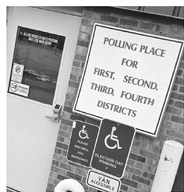Beware of these risky scams targeting military families and veterans


Service members, veterans, and their families are common targets for fraud, with a median reported loss of $200 last year—32% higher than the general population.
The Better Business Bureau receives thousands of reports per year from active-duty service members, military families, and veterans through the crowdsourced scam reporting tool, BBB Scam Tracker and the BBB Risk Index, which measures risk according to exposure, likelihood of losing money, and median monetary loss. This gives a better sense of which scams not only take the biggest financial toll on military consumers, but also which kind of scams will most likely result in a loss.
Here are the top most risky scams from lowest to highest risk as reported in Military Consumers & Marketplace Trust report this year: Fake Check/Money Order Scams —With the increased use of credit cards and other forms of digital payment, it’s easy to forget how checks actually work and how to tell if a check is fraudulent. Scammers take advantage of this in a number of ways. One strategy fraudsters use is to overpay you for a product or service with a check. The scammer will tell you to just send him or her the difference by wire transfer—and maybe even let you keep a few extra bucks for your trouble. Remember: a check may “clear” in your account, but you are still responsible for the funds—even if it turns out to be fake weeks later.
Tech Support Scams — A warning pops up on your screen with the dreaded words: You Have Been Infected. Immediately, the panic sets in: you need to keep in touch with family and loved ones, and prevent all of your valuable files and information from being lost forever. A phone number appears on the screen, or you get a phone call from someone claiming to be from a wellknown tech support company. No matter how much the screen is flashing, or how loud the warning is blasting on your computer—try to stay calm. Scammers use fear to lower your defenses and lure you out of hundreds of dollars. Immediately shut down your device and reboot. Do not give control of your device to a third party that contacts you. Instead, reach out directly to a local business or online service provider you trust.
Online Purchase Scams — Nearly three out of every four military consumers reporting an online purchase scam lost money to a fraudster. Between frequent moves and changing financial situations, families are buying and selling more items online—and falling into common scammer traps. No matter where you’re stationed, purchase items from reputable retailers with a verifiable physical address and a secure website. If you’re selling your items or purchasing them from individuals, use reputable online marketplace sites and apps that offer protections so your transaction is safer and more secure.
Home Improvement Scams —When you’re new in town, it can be hard to know who to trust with your home repairs. Sixty percent of military consumers who reported a home improvement scam lost money, which is significantly higher than the 53% across all consumer types. No matter how trustworthy someone may seem at your door, you should always verify their credentials. Say no to cash-only deals, high-pressure sales tactics, payments made upfront, handshake deals without a contract, and on-site inspections.
Employment Scams —By a landslide, the most risky scam for military spouses and veterans is employment scams; the median dollars reported lost was $2,460— more than double that reported across all consumers. Whether you’re looking for a flexible opportunity close to home or hoping to secure your first civilian job, it can be difficult to identify if an opportunity is made for you or just plain made up.





